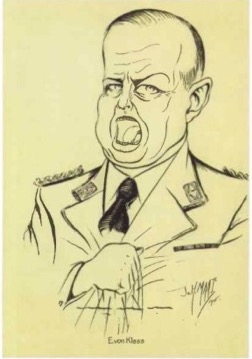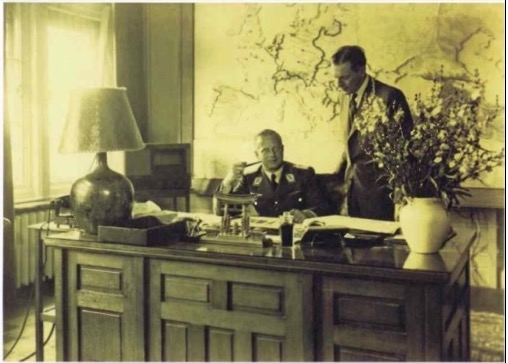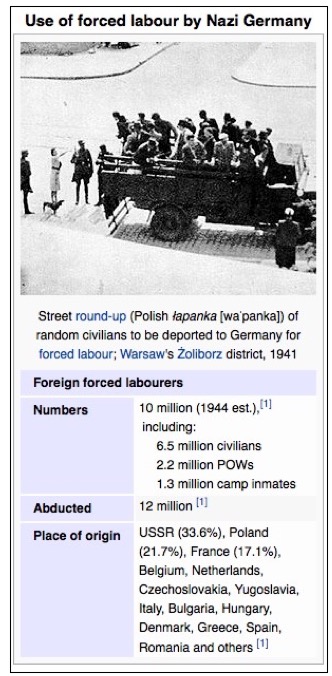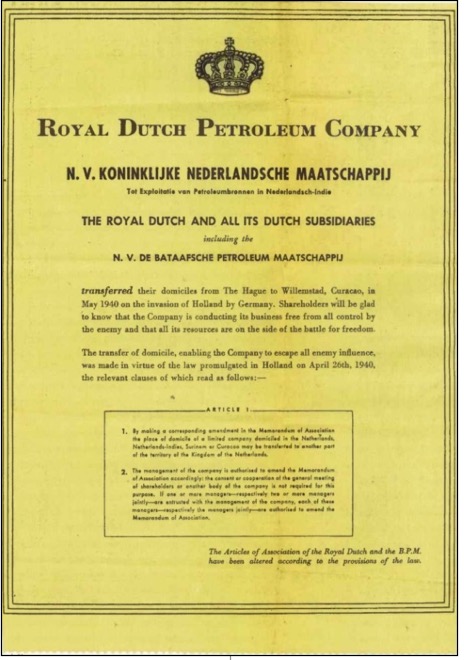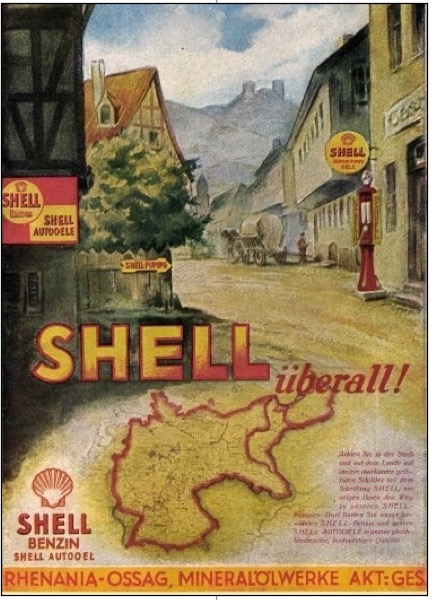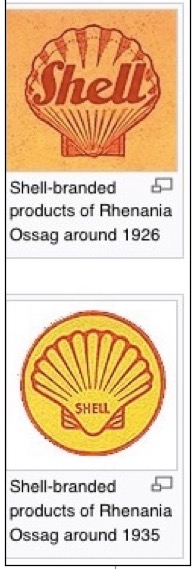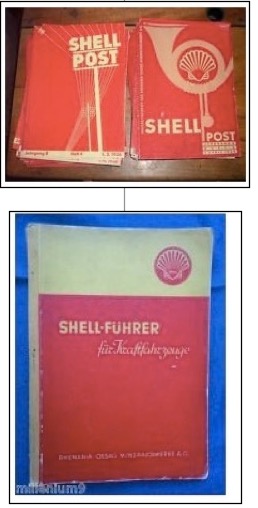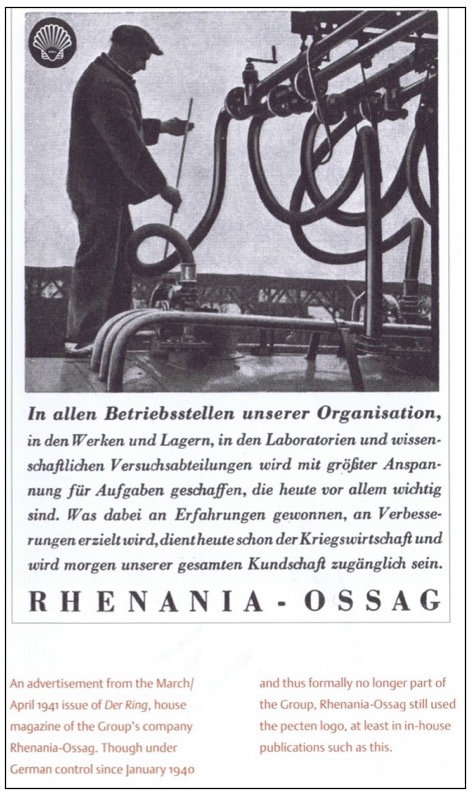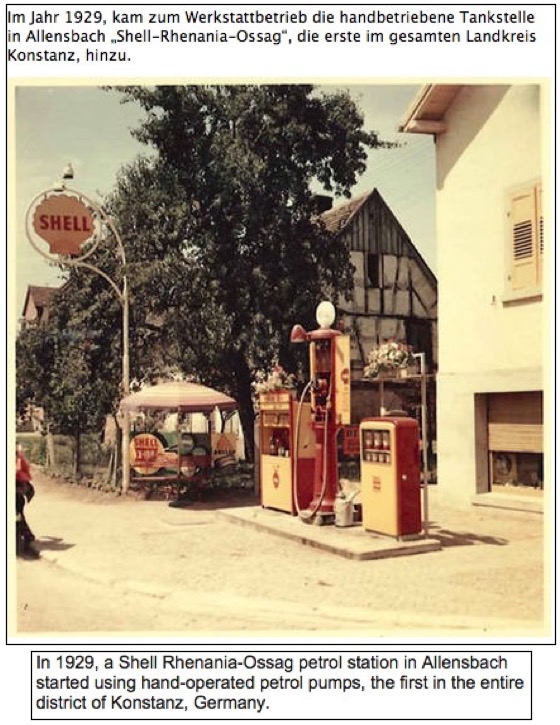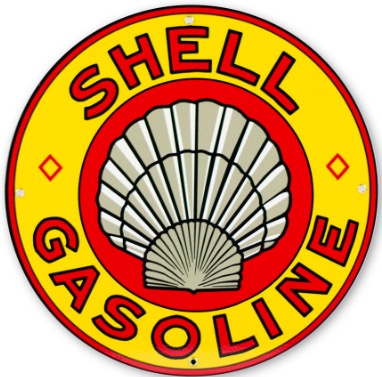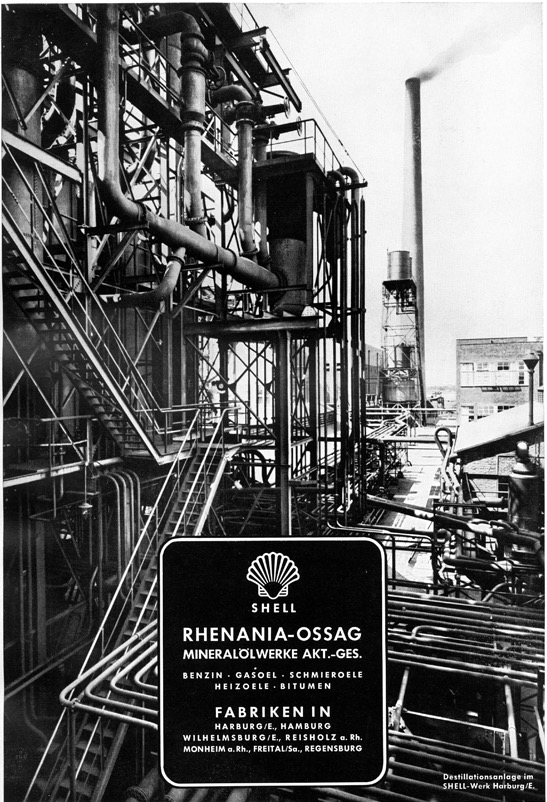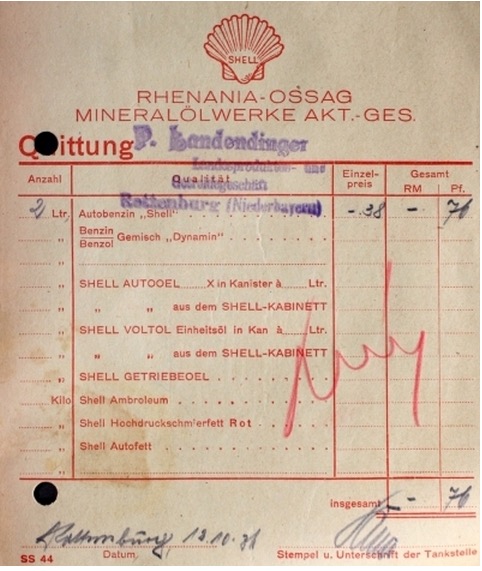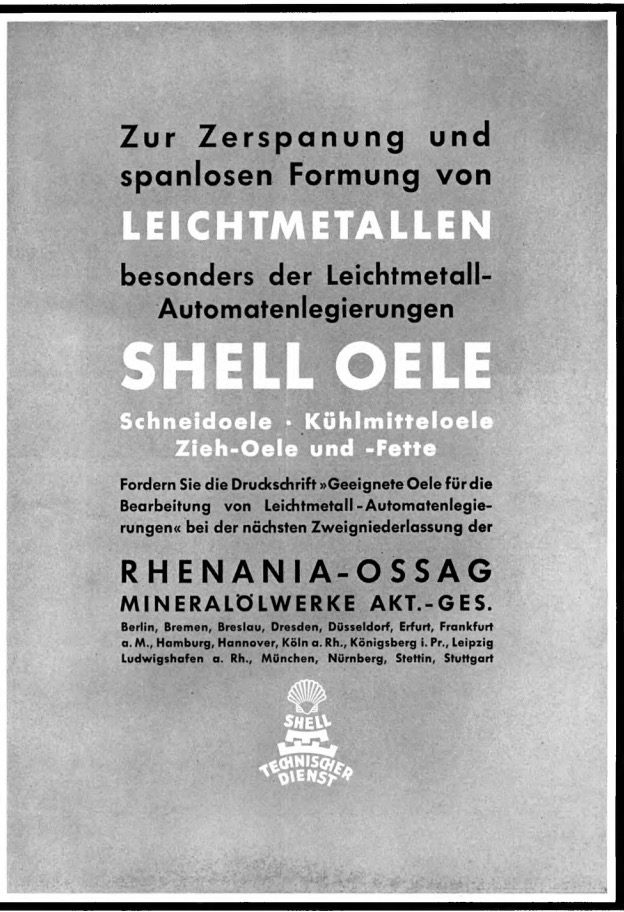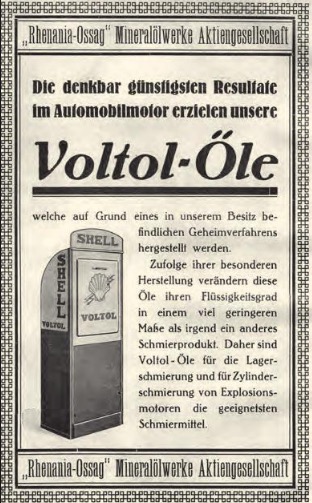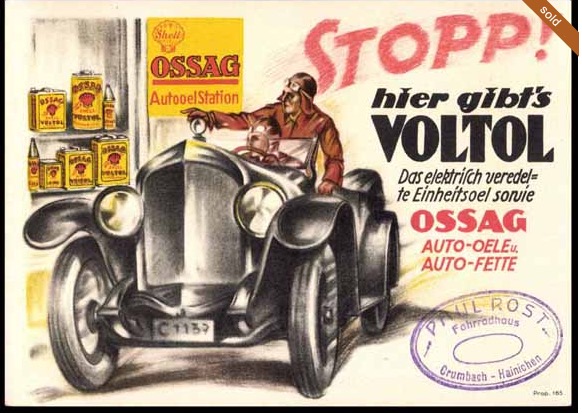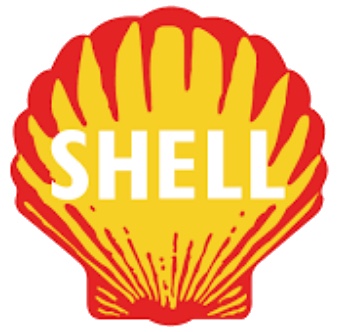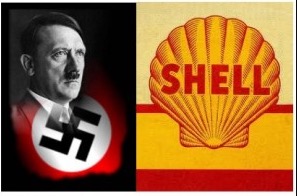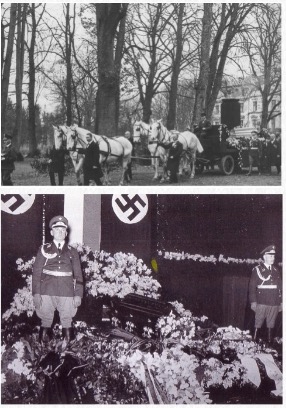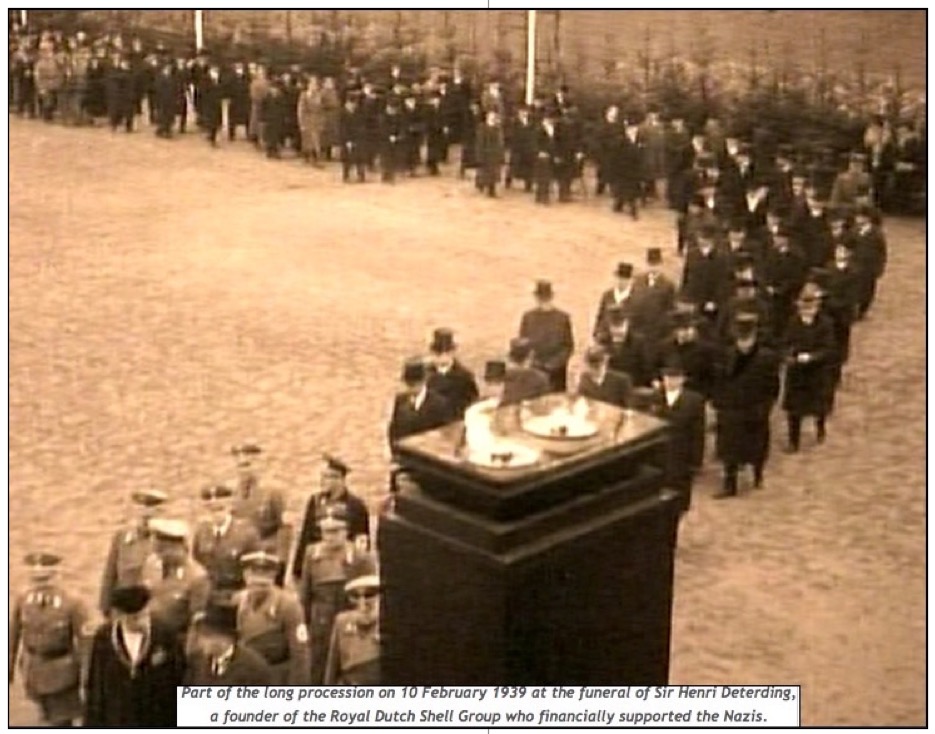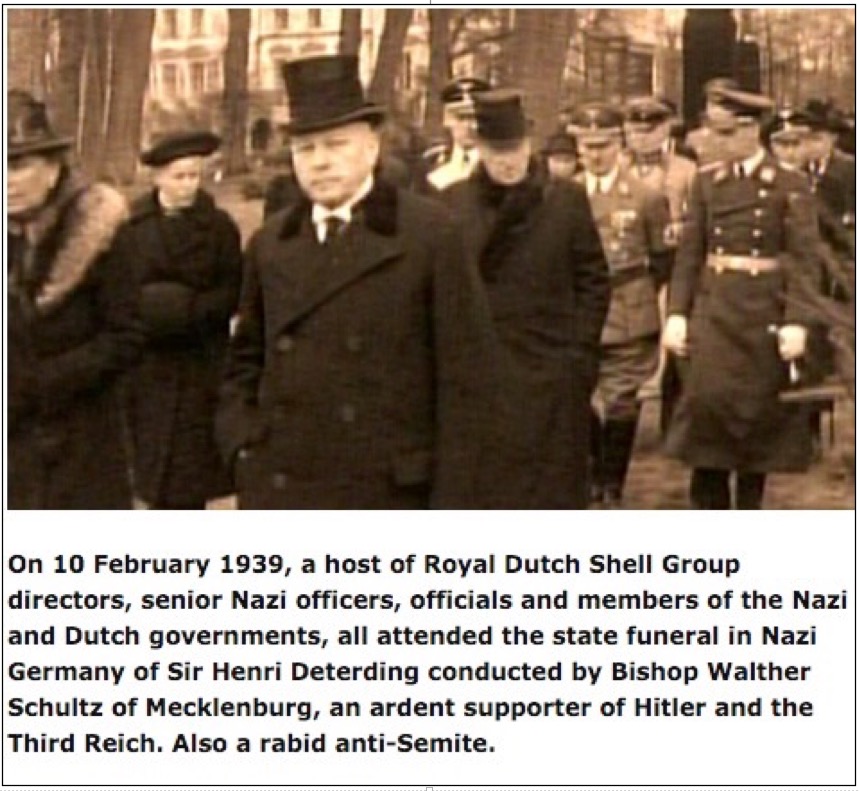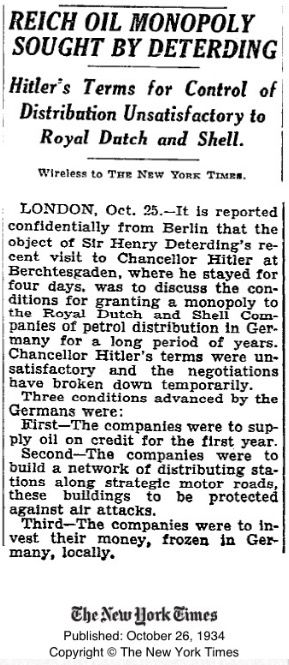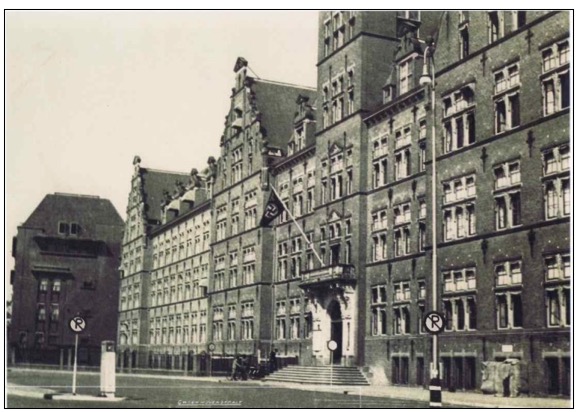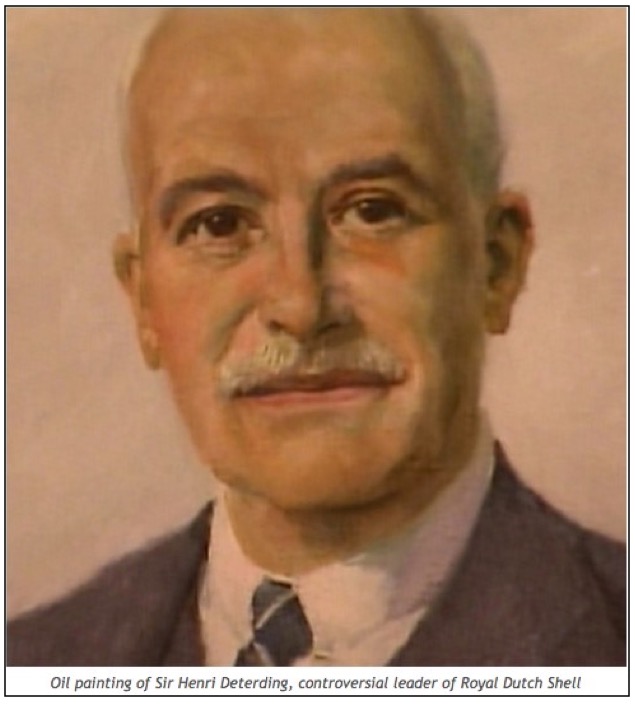The Nazis presented considerable challenges to Royal Dutch Shell over control of its subsidiaries in occupied countries. The above caricature (and seated Nazi officer in the photograph) is a former Shell director, Hauptmann Eckhardt von Klass. He was the Verwalter (administrator) appointed by the Nazis to “exercise supervision over Group companies in occupied Europe.” See pages 80 and 81 from RDSH V2.
Before, during, and after World War 2, Royal Dutch Shell was the owner of companies located in Germany and Nazi-occupied Europe, including Rhenania-Ossag.
With the aid of Rhenania-Ossag in a small but vital capacity, preparations for war had proceeded at a feverish pace leading up to the German invasion of Poland in September 1939.
Germany used forced slave labor in that period.
There is evidence confirming that Royal Dutch Shell companies in Germany used slave labor before and during World War 2.
The Group was certainly responsible for forced labor at German subsidiaries prior to the appointment of a Nazi Verwalter.
The question is whether Shell retained any control (and legal responsibility) over the relevant Royal Dutch Shell Group companies after the Nazis appointed a Verwalter.
Following the Nazi invasion of Holland, a Nazi officer, Hauptmann Eckhardt von Klass, was named in January 1940 as Verwalter to oversee Royal Dutch and the aforementioned Bataafsche (another company within the Shell Group).
He was a former research director of Rhenania-Ossag, and, therefore, a former Shell director.
That fact suggests that although the Nazis were now overseeing the company, the change was made in an accommodating way with a Rhenania-Ossag insider being appointed to the position.
Articles in American newspapers published the month after the appointment, on 13 & 15 February 1940 said that Shell had continued to make deliveries of oil products to Germany until December 1939.
Extract from a section that appeared in both articles:
This operation caused no stir among insiders who know the background of the story. It all dates back to the operations of Sir Henri Deterding the born Hollander with a French first name, knighted by His Britannic Majesty and buried on his beloved estate in Northern Germany. Deterding sewed up the German market by substantial cash payments to the rising Nationalist party before and after they came to power.
The headquarter offices of Royal Dutch, Bataafsche, and other Shell Group companies officially moved on 10 May 1940 from The Hague to the Dutch West Indies colony of Curacao. (See official announcement by Royal Dutch Petroleum Company displayed center page – from page 30 RDSH V2).
According to Shell’s paid historians, the Verwalter, Eckhardt von Klass, had full powers to act on behalf of the concern (Group) in occupied Europe. See page 32 RDSH V2.
The unambiguous claim of “full powers” is however undermined by the wording of this extract from page 78 of RDSH V2”:
“Meanwhile the relationship between parent company and subsidiary had to some extent been reversed by the appointment of Rhenania-Ossag’s research director as Verwalter over Bataafsche’s Amsterdam laboratory, to ensure that it would contribute to the German war effort.”
I draw attention to the phrase: “to some extent.”
It is unclear precisely what this means, but it seems that Shell did not in practice suffer a 100% loss of influence/control. Shell’s paid historians offers no information about any evidence found in the archive that led to the inclusion of this possibly highly significant phrase.
Further confirmation of a continuing special relationship between the Royal Dutch Shell Group and the Nazi regime comes from a report prepared by the British Intelligence Objectives Sub-Committee entitled:
“RHENANIA OSSAG A.G. HAMBURG-GERMANY. FUELS AND LUBRICANTS”.
A team of four people from the U.S. Petroleum Administration for War and the British Ministry of Fuel and Power prepared the report.
The information it contains was gathered during a visit of the combined British/American team to the Hamburg area in October 1945.
Senior employees, including Prof. Dr. Zerbe were interviewed at Rhenania-Ossag.
One of the objectives of the investigation was to ascertain the war-time activities of Rhenania-Ossag A.G.
Shell and IG Farben are mentioned many times in the report.
The following is an extract from page 66 of the report:
In reply to a question as to why Rhenania-Ossag had not participated fully in the German development of petroleum products, it was stated that because this company was regarded as of “foreign ownership”, it was not taken into the confidence of the German Government. Most of this development work was done either at the laboratories of the Ministries concerned or by the I.G. Farbenind. A.G. This left the laboratories of the Rhenania-Ossag free to work on problems allied to their own production.
So, although the Verwalter was said by Shell’s historians to have full control, this is further evidence that it does not appear to have been exercised in practice.
Quite clearly the Nazi regime did not consider Rhenania-Ossag to be under its absolute control, but a separate foreign-owned and run entity “free to work on problems allied to their own production.”
The fact that it was not considered safe to entrust the foreign-owned company with petroleum product development plans of the German government reinforces this conclusion.
It indicates an element of autonomy at variance with the infamous dictatorial Nazi control over annexed and invaded countries.
The Nazis apparently had respect for Shell’s ownership and to some degree the independence of the Rhenania-Ossag management, which enjoyed continuity before and after WW2.
This is understandable bearing in mind that Shell, through its Nazi leadership, had saved the Nazi party when it was in a state of financial collapse and had funded it to a considerable extent in subsequent years.
After the end of World War 2, Shell rehired former management of Rhenania-Ossag involved in the forced labor programs.
I have already mentioned Robert Finn, who joined Rhenania-Ossag in 1929 and became a Nazi supporter. He was far from alone. Many employees of Royal Dutch Shell companies in Germany and the Netherlands became active Nazis. All Jewish shareholders, supervisors and employees of Rhenania-Ossag had been dismissed (in 1933).
During the war, Finn was appointed the head of the “Association for the lubricating oil supply” (ASV), helping to fuel the Nazi war machine.
The Hamburg Morning Post article published in February 2007 an informative article about Robert Finn described as “an important manager of Deutsche Shell.” According to the article, the “ASV” had to keep the wheels rolling for the “final victory” by coordinating the supply of lubricants to the Nazi forces and using “thousands of forced laborers.”
Despite this horrendous track record, Finn was allowed to re-join Shell after the war as a director of Deutsche Shell Chemie (German Shell Chemical company).
Shell was self-evidently not put off by his role as a Nazi “Big Shot.”
The controversial rededication of a sports hall first named in his honor in 1976 as “Robert Finn Hall of Eimsbütteler gymnastics federation” attracted protests and negative coverage by German news media. The coverage focused on his Nazis past, including his close association with Shell/Rhenania-Ossag.
According to a news report in March 2010, there was also concern about swastika-like symbols called “Turner crosses” on display at the sports hall.
The question of whether Shell is legally responsible for what happened at its German subsidiaries several decades ago, while the Verwalter was supposedly administering the companies on behalf of Royal Dutch Shell, is not easy to answer.
It might be impossible to arrive at any conclusion because of lack of available evidence and witnesses.
However, Shell surely has a moral obligation for the evil which took place in its name, such as the use of slave labor, bearing in mind that the leadership of Rhenania-Ossag apparently still considered that they were working for Shell and operated on that basis.
It was not done just in the name of Shell, but also using the iconic corporate logo that is as well known as the swastika.
In 1904, the scallop shell (or pecten) replaced Shell Transport’s first marketing logo. In various forms, it has remained in use ever since.
The examples of Shell logo’s used by Rhenania-Ossag from 1926 and 1935, shown center page, are both from the Wikipedia article “Rhenania-Ossag.”
Some information about the pecten is taken from shell.com.
There is further information within a downloadable document – “The History of the Shell emblem” – in which this valid claim appears:
“The Shell emblem – or Pecten – remains one of the greatest brand symbols of the 20th Century”
The authors of this judiciously selected online history neglected to mention the Nazi association with the pecten.
The Nazis continued to use the Shell logo in Germany after the appointment of a Verwalter for Rhenania-Ossag in January 1940.
It was used by Rhenania-Ossag in the years before, during and after WW2. Including the entire period when Shell was in partnership with IG Farben.
Likewise a Rhenania-Ossag one pump Shell petrol station shown in an advertisement from the March/April 1941 issue of Der Ring, the house magazine of Rhenania-Ossag.
According to the red text, beneath the advert, Rhenania-Ossag still used the pecten logo after January 1940, “under German control.”
Shell has never apologized for the acts of appeasement and use of forced labor that took place in Nazi Germany under Shell’s name and logo at Shell premises, which always remained the property of Shell.
Related Rhenania-Ossag items are shown, all displaying Shell branding.
Royal Dutch Shell is legally and morally responsible for alleged forced labor at Rhenania-Ossag before the appointment of a Verwalter. Unfortunately most, if not all victims are probably deceased.
Some might argue that Shell is morally responsible for what took place on Shell premises under the Shell brand by Shell’s Nazi managers, some of whom were rehired by Shell after WW2 e.g. Robert Finn.
A paper by Marten Boon & Ben Wubs published on 8 July 2016 entitled “Property, control and room for manoeuvre: Royal Dutch Shell and Nazi Germany, 1933-1945” provides an independent perspective on some matters discussed in this chapter and confirmation of some points. Their paper is based in part on information from Shell’s historical archive and the published work of the eminent cited authors within “A History of Royal Dutch Shell, Volumes 1,2,3”, published in 2007. Plus many other cited sources.
(Marten Boon & Ben Wubs (2020) Property, control and room for manoeuvre: Royal Dutch Shell and Nazi Germany, 1933–1945, Business History, 62:3, 468-487, DOI: 10.1080/00076791.2016.1205034)
Marten Boon is a postdoctoral researcher at the Department of History at the Norwegian University of Science and Technology in Trondheim, Norway. He is working on the history of oil trading companies within the project The Hidden Companies of the Global Economy funded by the Research Council of Norway.
Ben Wubs is an associate professor at the Department of History of the Erasmus School of History, Culture and Communication at the Erasmus University Rotterdam and Appointed Project Professor at the Graduate School of Economics, Kyoto University.
Some extracts:
From page 469
In Industry and Ideology Peter Hayes concludes that IG Farben’s (IG) top management was not ideologically culpable for Nazi crimes but by focusing only on business objectives within the parameters set by the Nazi State, IG was an accessory to slave labour and the horrors of Auschwitz.
In addition, business decisions were most often made on the basis of prevailing business interests and generally not politically motivated, although there were foreign business leaders overtly sympathising with Nazi ideology.
From page 470
Together with Standard oil (So) of New Jersey, RDS was market leader in Germany for motor fuels, lube oils, asphalt and white oils among others. Because these were vital to the operations of the German army, RDS profited handsomely from the growing Nazi armaments expenditure after 1933. As a result, RDS’s subsidiary Rhenania-ossag grew greatly in size and profitability during the 1930s.
…it is our impression that RDS and its German subsidiary had a lot to offer to the Third Reich and as a result were treated circumspectly.
When war broke out RDS had lost all control over its subsidiary and in section five we question to what extent the local management also lost control over Rhenania’s assets after 1940.
From page 471
During World War I the Group’s subsidiaries in Germany expanded their activities rapidly.
Germany had become Royal Dutch’s second biggest market in Europe and the fourth biggest market in the world…
Hydrogenation: Opportunity and Threat
In Nazi Germany, Rhenania was not just a foreign-owned firm; it was also a company producing strategic goods, i.e. fuels and lubricants vital to the Nazi war machinery. Rhenania was therefore obviously important for the regime…
From page 472
In Germany, the German subsidiaries of RDS and SO participated in the Deutsche Gasolin AG, which marketed the synthetic gasoline from IG’s Leuna factory.39 Even before the Nazi takeover, IG’s hydrogenation technology had caught Hitler’s eye and the company became the centrepiece of the Nazi’s autarky policy. Although before 1933 RDS faced little in the way of political risk, its entanglement with IG did complicate Rhenania’s position under the Nazi regime…
Pages 476/477
Faced with a state bent on autarky, Kruspig quite possibly judged the project a viable option because it potentially prevented Rhenania from facing serious future impairment by state intervention, mitigated the imminent risk of losing market share while sharing the financial risks with its major partners, SO and IG.
To accommodate RDS’ concerns with regard to other national governments the capital participation of Rhenania and DAPG was cloaked through banks buying and holding their shares – Delbrück Schickler and Landesbank respectively.
From page 478
The Pölitz episode shows that Rhenania’s management retained a certain measure of room for manoeuvre.
From pages 479
Between 1933 and 1939, the operations of Rhenania became increasingly restricted by the Nazi regime. over the course of the Pölitz project RDS had gradually lost effective control over its German subsidiary and at the outbreak of war Rhenania was placed under a German Verwalter (administrator), completely severing the line of command from London and The Hague to Hamburg.81 That is not to say, however, that Rhenania itself lost complete control.
Rather than an administrator being forced upon Rhenania’s management, it was general manager Erich Boeder, after having taken over as managing director from Walter Kruspig following his untimely death in 1939, who suggested the appointment of an “influential individual” as administrator to the board of Rhenania on the grounds of Rhenania having considerable British (enemy) influence.83 However, instead of assuming full control of the Rhenania management, Boeder requested the administrator work aside him, while Rhenania’s management was to retain full control of daily operations. Boeder not only suggested the appointment and tasks of an administrator, he also suggested that Secretary of State Ludwig Grauert should be appointed. Grauert was well connected in the Nazi bureaucracy. As representative of the German steel industry in the 1920s, he had been influential in securing financial support for the NSDAP before the Nazi-takeover. After joining the NSDAP in 1933, Göring personally appointed him as a high-ranking bureaucrat and subsequently Secretary of State of the Prussian Ministry of the Interior.84
Grauert, therefore, had a direct link to Göring, the most powerful Nazi figure controlling the organisation and distribution of oil and synthetic fuels, among many other things.
Having an administrator that was on the one hand well connected to the Nazi state but on the other hand restricted in its control over the company was of vital importance to any foreign company operating in Germany.
Boeder also attempted to have the administrator appointed for all of RDS’s holdings in Greater Germany. The Reich Commissioner for the Treatment of Enemy Property, however,
(Running onto page 480)
rejected this idea because the administration of Bataafsche, the Dutch operating company owning most of RDS’s holdings in continental Europe...
The degree of complicity of multinationals in Nazi-Germany can seem all too clear in hindsight…
From page 481
However, we also showed that Rhenania managed to retain considerable room for manoeuvre, even when war broke out, by leveraging its political contacts, relations to So and IG, local standing and technological advantages to the Nazi economy. By doing so, we argue that the primacy of the Nazi state and its overbearing control over foreign business in Nazi Germany is not entirely consistent with the experience of RDS.
By proposing Grauert, the company created a close link to Göring, while successfully negotiating the retention of management powers of attorney. The loss of control was therefore partial and left considerable room for manoeuvre for the local management.
From page 482
Rhenania proved quite able to retain some room for manoeuvre over the course of time and acted in this respect primarily with the long-term interest of the company in mind.
From Note 9 of Notes
Royal Dutch Shell’s Henry Deterding was a particularly salient example. Because of his enthusiasm for the Nazis he was sidelined and finally forced to resign as the company’s chairman in 1937.
ENDS
Copyright Notice: All rights, including copyright and compilation in the content of shellnazihistory.com web pages authored by John Donovan, are owned or controlled for these purposes by him. In accessing the said web pages, you agree that you may only download the content for your own personal non-commercial use. Except where expressly stated otherwise, you are not permitted to copy, broadcast, download, store (in any medium), transmit, show or play in public, adapt or change in any way the content of these web pages for any other purpose whatsoever without the prior written permission of John Donovan via the email address: john@shellnews.net
shellplc.website and its sister non-profit websites royaldutchshellplc.com, royaldutchshellgroup.com, shellenergy.website, shellnazihistory.com, royaldutchshell.website, johndonovan.website, shellnews.net and shell2004.com are owned by John Donovan. There is also a Wikipedia feature.